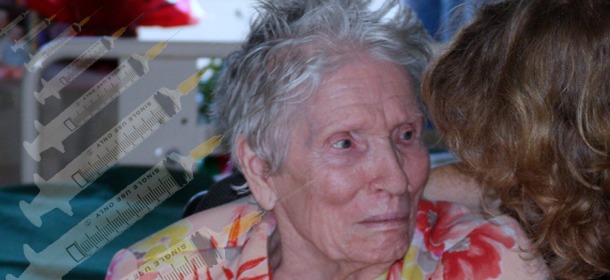Diseases/Conditions
Childhood Diabetics Will Face Alzheimer’s While Still Young
Reports are now coming out showing that diabetes causes Alzheimer’s. So what does this bode for the future of children with diabetes? Frankly, it doesn’t look good.
Alzheimer’s disease related to insulin deficiency, and insulin deficiency is the definition of diabetes. It shouldn’t be much of a surprise to find that diabetics are twice as likely to suffer from Alzheimer’s.
The connection becomes even more obvious when you know that insulin is required by the brain to make memories. Therefore, when insulin is out of balance, memories can’t form. The connection is known. What’s a mystery is why it took medical science such a long time to look for evidence of the relationship between diabetes and Alzheimer’s.
In Diabetics are more prone to dementia,The Times of India reports on a Japanese study of people over age 60. They found that diabetics were twice as likely to develop Alzheimer’s disease. They also found that people without diabetes who had impaired glucose metabolism—that is, they were pre-diabetic—were also more likely to become Alzheimer’s patients.
By 2008, the Salk Institute had noted the connection between diabetes and Alzheimer’s when they did research on diabetic mice. They found that these mice were developing memory problems equivalent to several human years earlier than Alzheimer’s is generally noted to occur. The brief video below is from 2008; it’s a news report documenting the Salk Institute’s discovery:
What will become of all the children who are now diabetic? Aside from facing shortened lives with the specters of neuropathy and amputations, it seems that they may also be facing dementia in their forties, perhaps even earlier in some.
Conventional medicine still doesn’t comprehend the severity of the diabetes epidemic. In fact, they seem far more interested—thrilled even—in all the extra business it brings. Their treatment consists primarily of fighting symptoms with drugs, not of reversing it. Yet, unless a person is born with diabetes, the disease is nearly always reversible through the simple expedients of diet and exercise.
If conventional medicine truly wanted to resolve this coming disaster, they would do battle with Agribusiness and Big Pharma, the causes of childhood diabetes. Of course, they don’t. It is, apparently, far more important to the medical system of today to rake in the money than to have a concern for the lives of their patients. As a result, today’s children face desperately bleak futures.
More Information: Is Alzheimer’s a Form of Diabetes?
Tagged alzheimer’s, alzheimer’s diabetes, conventional medicine, diabetes, modern medicine
Related Posts
-
Gloria
-
Gloria














